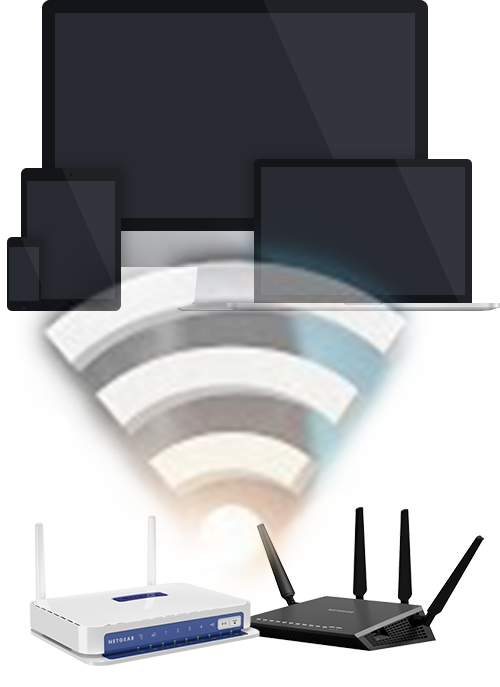Wi-Fi has come to be an important portion of our hectic everyday lifestyles. Due to Wi-Fi, we no longer have to be tethered to the Net with cables. But have you ever quit to question how it works?
My Wi-Fi extender makes use of radio waves to transfer information among your tool and a modem via frequencies. Two radio-wave rates can be used, depending upon the volume of data being actually sent: 2.4 gigahertz and 5 gigahertz. What does that way, though? Well, a hertz is merely a size of frequency. As an example, let's say you're remaining on a beach, watching the waves accident to shore. If you measured the time between every wave collision, you 'd be measuring the constancy of the waves. One hertz is a frequency of one wave per second. One ghz, meanwhile, is one billion waves per second. The higher the frequency, the greater the amount of data transferred per second.

Both Wi-Fi frequencies are split into several channels so about prevent high web traffic and disturbance. When it pertains to distributing the data across these channels, well, that's when the magic-- er, computer technology-- happens. The first step while doing so is started by you (the user). When you access the Web on your device, it transforms the details you've requested into doubled code, the language of computers. Every thing personal computers do is located in dual code, a series of 1s and 0s. When you click this short article, your request is translated into a bunch of 1s and 0s. If you're using Wi-Fi, these 1s and 0s are converted into wave rates by the Wi-Fi chip embedded in your device.
The frequencies travel across the radio channels discussed earlier and are received by the Wi-Fi switch that your device is connected to. The router then converts the frequencies back into binary code and translates the code into the Internet traffic that you requested, and the router receives that data through a hardwired Internet cable. The process repeats itself until you have loaded this article-- or anything that requires the Internet. Every one of this happens Netgear extender support at an unbelievably fast rate; most routers operate at 54 Mbps (megabits per second), meaning that when such routers translate and transmit binary data, 54 million 1s and 0s are enjoyed or sent in a single second.
